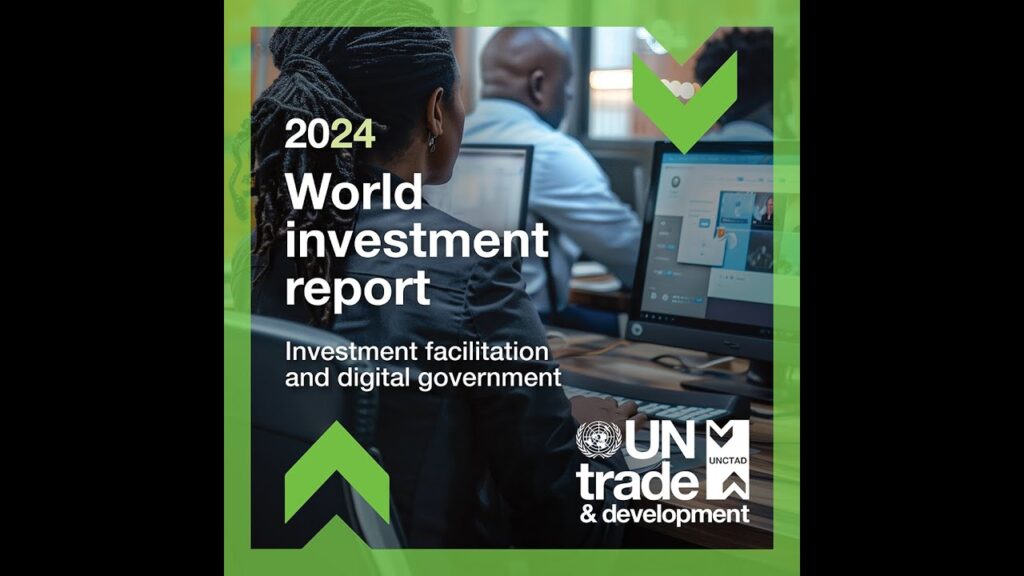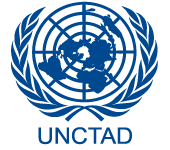Table of Contents

Why in news?
- FDI flows globally has reduced to a 2% from the previous year in 2022 and the details are presented in the world investment report 2024 published by the United Nations conference on trade and development.
- The decrease in FDI flows was not evenly shared between countries and industries; FDI flows to India, China, France, Australia, and the USA all decreased.
- As noted in the World Investment Report 2024, this decline could be due to several reasons, sectoral effects and its consequence have been explained here targeting India.
Global FDI Decline: Facts and Forecasts for International Business.
- FDI is very crucial in the development of the global economy, through provision of capital, technological know-how and managerial skills. However, in 2023 the global FDI decreased by 2% when compared with the statistics of 2022.
- This decline which has been cited in the World Investment Report 2024 was attributed to various factors such as geopolitical risks, business insecurities and shifting industrialization polices.
- The consequence of such a situation is quite significant, especially for emergence market economy.
FDI Decline in India: understanding of quantitative data analysis
- FDI inflow to India was highly declined from $49 billions in 2022 to $28 billion in 2023 that means, 43% down.
- Such a decline placed India from eighth to fifteenth rank in terms of FDI receipts in the world.
- Nevertheless, the defected Indian projects remain interesting for foreign project financing and new construction.
Reasons for the Decline:
- Economic Slowdown:
- Some of the economic problems which have impacted the India: lower GDP, investors self-confidence, etc.
- Regulatory Changes:
- Closeness to the United States has attracted some investment due to its large market but the presence of strict rules and regulations coupled with unpredictable policies makes it a risky environment for investment.
- Global Economic Conditions:
- Events in the broader global economy as well as the emerging geopolitical threats and risks have affected investor sentiment in India.
Impact on Sectors:
- Infrastructure Projects:
- However, construction industry has not felt this impact that much as many new infrastructural projects are still being planned and invested in India because they are long term projects and supported by the government.
- Technology and Innovation:
- It is quite clear that investment has shifted more toward knowledge intensive industries albeit at a somewhat slower rate.
- By examining India in the context of the WIR, it is illustrative to discern general trends of FDI movements and how these apparently global patterns translate into national conditions and vice versa.
Possible Factors for the Continuous FDI Decline around the Globe
- The World Investment Report 2024 identifies several factors contributing to the global decline in FDI in 2023:The World Investment Report 2024 identifies several factors contributing to the global decline in FDI in 2023:
- Uncertain Global Growth Prospects: Globalization and liberalization of the economy has shrunk the world and multinational corporations (MNCs) have had to be slow in their economic returns as the big economies of the world slow down.
- Geopolitical Tensions: Several cases of conflicts and political instabilities in different parts of the world have highly influenced and raised risks hence a push away for FDI.
- Economic Fragmentation: The global geopolitical climate of recent years has introduced a number of concepts such as protektionismism and trade barriers which distort traditional methodology of investment.
- Strict Industrial Policies: In a similar light, through industrial policies, there is increased stringency especially on cross-border investments by governments in a bid to support domestic industries.
- Diversification of Supply Chains: Enterprises are reorganizing their supply chain to reduce risk, which has caused the redistribution of FDI from the conventional centers.
- All these factors put together create a more compounded and a much more cautious Investment environment affecting the FDI going round the world.
Extent of Sectoral Effects of Decreasing FDI
- The trend has not been the same across the board, ‘analysis of FDI indicates that the level of FDI has not reduce across the board but has reduce in the various sector.
- ’ Key sectors affected include:
- International Project Finance: International project finance for infrastructure decline by 23%, what is essential for the development of this sphere. This we can see it is as a result of lower confidence in long term investment projects because of the economic risks inherent in any given fiscal period.
- Cross-Border Mergers and Acquisitions (M&As):
- A 46% drop in cross-border M&As is an expression of companies’ criticism in undertaking major transactions and especially in emergent markets.
- Developing Economies:
- Global FDI to developing economy declined by 7 percent in the year 2009, though the impact varied across the regions.
- West and central Asia were significantly worst hit by the disease’s impact while Asia’s developing nations saw the worst incidence rate with a grip of 8%.
- Sectoral Breakdown:
- Infrastructure: Project finance is a major concern today due to which infrastructure that is significant for the development of economy and especially for the developing nations is suffering.
- Manufacturing: Manufacturing investments have scaled back, undermining supply chains and production capabilities on the global level.
- Technology: However, in relative terms, technology and digital sectors are still moderately resistant and attracting funding, primarily because of their importance for today’s economies.
- That the positions refer to different sectors suggest that global policy responses must be unique to specific value chain issues.
The Role of UNCTAD and the World Investment Report
- UNCTAD is a leading organ in the analysis of investment flows and in the development of politics for their encouragement.
- UNCTAD was established in the year 1964 and later remodeled in 2004, offering vital information on trade and development especially to the developing countries, investment.
Functions of UNCTAD and the World Investment Report:

- Research and Analysis:
- The WIPO’s World Investment Report include studies on global investment policies which offer useful information to policy makers and investors.
- Policy Recommendations:
- This paper includes policy recommendations that may be used by countries to enhance their investment environments and, therefore, FDI inflows.
- Capacity Building:
- UNCTAD assists countries in the development of their FDI human capital, which corresponds to a country’s ability to govern FDI, its benefits and risks.
- The annual World Investment Report published by UNCTAD is essentially a source of information to assess the global investment flows.
Conclusion
- An analysis of FDI trends for the year 2023 outlined in the World Investment Report 2024, there are various issues, which include economic forces, political effects, and the nature of the sectors mostly involved influencing FDI flows.
- Even the highly FDI reliant countries such as India have seen a general decline in the FDI, situation which is similar to the global trend.
- Hence, knowing the causes and effects of this decline is important in providing the relevant authorities and any investor with substantial knowledge that would help to grow the number of FDIs.
- As global economic environment changes, it reflects that players of UNCTAD era such as predictor of data, analyst of analysis and advisor of policy will always have significant part to play in the context of these hurdles and opportunities of sustainable economic development.
- To sum up, awareness of the current and prospective tendencies of the FDI and how they might affect the existing business profiles and strategies will be critical for business management and policy making processes in the globalizing world.
FAQS :
Q1: What is Foreign Direct Investment (FDI)?
Ans: FDI is defined as an investment of a person’s or firm in one country in the business of another country. It is normally based on capital, technology or management techniques.
Q2: What is the World Investment Report?
Ans: UNCTAD World Investment Report is a global annual publication by the United Nations Conference on Trade and Development. It offer a vivid picture of the outward FDI and trends, inward FDI and policies, as well as arising issues worldwide.
Q3: Why is the World Investment Report 2024 relevant?
Ans: The World Investment Report 2024 is important as it gives information on the fall in the global FDI in 2023, with focuses on several factors that may have led to the reduction as well as its effect on numerous countries and industries.
Thank you for your sharing. I am worried that I lack creative ideas. It is your article that makes me full of hope. Thank you. But, I have a question, can you help me?